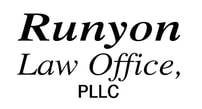Who Do You Trust?
First, let's dispel a few misconceptions. Your spouse doesn't get to serve in any of these roles just by virtue of that relationship; he/she needs to be appointed in a legal document like anyone else. The exception is that, ready or not, he/she does get the little darlings. Also, there's no legal requirement that any of these roles be filled by a NH resident - that might be more convenient in some respects, but not mandatory. Finally, it's not necessary to choose different people for each role, or to use family members at all. Capable and trusted friends or family members might fill several or all the roles if they're crazy (er, willing) and have the time.
Here are a few guidelines I've found helpful in making the various choices:
Legal and financial agents - they ought to be handling their own affairs in a competent manner in order to take on yours, too; and it would be helpful if they're somewhat nearby (though technology is an amazing thing), in order to have the best access to your mail, banks and professional advisors.
Health care agents - they need to be on the same page with you about issues like Do Not Resuscitate orders and discontinuance of artificial life support; it doesn't matter how smart they are if, when the time comes, they aren't willing or courageous enough to carry out the wishes you've clearly expressed.
Executors and trustees - they not only need to be financially competent, but should be fair-minded and diplomatic enough to command the respect of your beneficiaries; after all, unless you spell out every detail for them (most people don't), they'll have to decide how to divide up the china and silverware, and who gets your collection of fridge magnets. (Don't laugh, that will be major undertaking for my executor.)
Guardians of children - they need to be people who'll raise your kids at least sort of the way you would; that doesn't mean they're the smartest or the most financially savvy or the most diplomatic; it does mean, though, that you admire the job they're doing - or did - with their own kids, that they live somewhere you'd want your kids brought up, that your kids don't totally despise them or their kids, and that they're young enough to keep at it until the chicks can leave the nest.
And it goes without saying (but I will anyhow), they all need to know and approve ahead of time that you're saddling (er, naming) them in these important roles. No one wants kids with suitcases showing up at their door unexpectedly.
Lastly here, you need to revisit your choices at least every 5 years. Some of your choices may have had Big D issues of their own; your financial gurus may have filed under Chapter 7; and your guardians may have moved from the Monadnock Region to a high-rise someplace with a frightening crime rate.
(Posted August 30, 2012)
